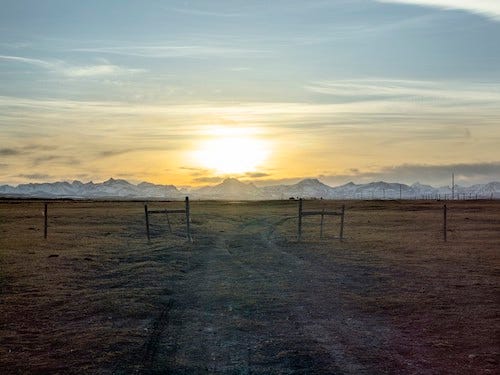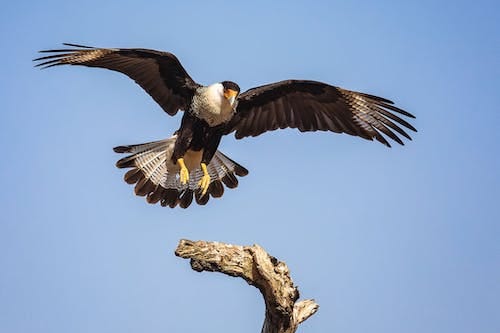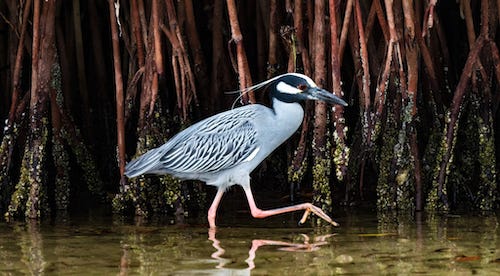The Weird Times: Issue 49, April 18 2021
I have this Feeling
A Weird Beast
Is going to come our way
—Rickie Lee Jones
“spirit traces in local landscapes resound in particular words on paper”
—Susan Howe
On the morning of April 18, 1906, a massive earthquake shook San Francisco, California. Though the quake lasted less than a minute, its immediate impact was disastrous. The earthquake also ignited several fires around the city that burned for three days and destroyed nearly 500 city blocks. National Archives Center for Legislative Archives. More than 3000 people were killed and many thousands more injured or homeless.
Where valleys were,
there are now mountains.
Where deserts were,
there now are seas.
—Erica Jong, After the Earthquake
Reparations

Return the National Parks to the Tribes: The jewels of America’s landscape should belong to America’s original peoples, David Treuer, The Atlantic, May 2021 issue
The national parks are sometimes called “America’s best idea,” and there is much to recommend them. They are indeed awesome places, worthy of reverence and preservation, as Native Americans like me would be the first to tell you. But all of them were founded on land that was once ours, and many were created only after we were removed, forcibly, sometimes by an invading army and other times following a treaty we’d signed under duress. When describing the simultaneous creation of the parks and Native American reservations, the Oglala Lakota spiritual leader Black Elk noted darkly that the United States “made little islands for us and other little islands for the four-leggeds, and always these islands are becoming smaller.”
…In 1491, Native people controlled all of the 2.4 billion acres that would become the United States. Now we control about 56 million acres, or roughly 2 percent.
…In some respects, ours is an era of Native resurgence. For all we have suffered, there remain 574 federally recognized tribes in the United States. When the first national parks were created at the end of the 19th century, only about 250,000 Native people were left in the U.S. Now there are more than 5 million Native Americans throughout the country, roughly equal to the number of Jewish Americans and millions more than the number of Muslim Americans.
Our survival hasn’t mattered only to us: As the efforts to assimilate us largely failed and we remained, mostly, in our homelands, Americans have gradually assimilated to our cultures, our worldview, and our modes of connecting to nature. The parks enshrine places, but they also emphasize and prioritize a particular way of interacting with the land. In the nation’s mythic past, the wilderness may have been a dangerous environment, something to be tamed, plowed under, cut down. But that way of relating to the land is no longer in vogue. For many Americans, our wild spaces are a solace, a refuge—cathedrals indeed. America has succeeded in becoming more Indian over the past 245 years rather than the other way around…
Parks, as they’ve existed for 149 years, have done a decent job of preserving the past. But it’s not clear that today’s model of care and custodianship best meets the needs of the land, Native people, or the general public. Nor is it clear that the current system will adequately ensure the parks’ future. That’s something Indians are good at: pushing ahead while bringing the past along with us. We may be able to chart a better way forward.
We go electric!
Why Renewable Electricity Powers Decarbonization — And Pays Off, Peter Fairley, Investigate West, 4/14/21
Much of the confidence about the price tag comes down to this: Innovation and mass production have made wind and solar power installations cheaper than most fossil-fueled power plants and today’s fastest-growing source of energy worldwide. The key to moving Cascadia’s economies away from fossil fuels, according to the latest research, is building more to make renewable electricity our go-to “fuel.”
However, doing that in time to help head off a cascading climatic crisis by mid-century means the region must take major steps in the next decade to speed the transition, researchers say. And that will require social buy-in.
ENERGY TRANSITIONS: 100% clean power? U.S. may be halfway there, Peter Behr, E&E News, 4/14/21
A new report from the Lawrence Berkeley National Laboratory documents the unforeseen combination of wind and solar power innovation, fracking, and two economic crises that sent carbon dioxide levels plunging. The results give hope to President Biden's daunting goal of a zero carbon grid 15 years from now, the report says, but also document what worked then won't be enough to go the rest of the way.
The report, "Halfway to Zero," gets its title from a 2005 forecast by the Energy Department's Energy Information Administration. It projected then that power sector CO2 would reach 3,000 million metric tons in 2020. Instead, the total was only 1,456 million metric tons, 52% lower than the projection.
The U.S. is finally looking to unlock the potential of wave energy: After decades of false starts, the federal approval of a new testing site off the coast of Oregon could give wave energy a much-needed jolt, Ysabelle Kemp, Grist, 3/29/21
At first glance, waves have the makings of an ideal renewable energy source. They’re predictable, constant, and tremendously powerful. Their energy potential is astonishing — researchers estimate that waves off the coasts of the United States could generate as much as 2.64 trillion kilowatt-hours annually, or the equivalent of 64 percent of the country’s total electricity generation in 2019.
But capturing the immense power radiating across our oceans’ surfaces is no easy feat — wave energy technology is challenging to engineer, start-up costs are high, and testing in open ocean waters is a regulatory nightmare. That’s why wave energy’s trajectory has been a stop-and-go affair plagued by false starts for decades. But things may finally be starting to shift for the industry: The federal government recently approved the first full-scale, utility grid-connected wave energy test site in the U.S.
Politics is Ever Present
War of unreality: Why Russia is threatening to escalate the Ukraine conflict: European governments have yet to learn a key lesson from the war in Ukraine. The alternative reality the Kremlin lives in is becoming increasingly dangerous, Gustav Gressel, European Council on Foreign Relations, 4/14/21
European leaders need to publicly call out Russian accusations against Kyiv and the West as lies, and to use the Organisation for Security and Co-operation in Europe’s full toolkit on confidence-building measures to publicly discredit the Kremlin’s arguments as fiction. Diplomatic constraint, indifference, and equidistance will only embolden the Kremlin to push unreality to new limits, and to act accordingly.
‘Putin-style democracy’: how Republicans gerrymander the map, Tom McCarthy, The Guardian, 4/11/21
“Public sentiment in 2020 favored Democrats, and Democrats retained control of the House of Representatives,” said Samuel Wang, a professor of neuroscience and director of the Princeton gerrymandering project. “[But] because of reapportionment and redistricting, those factors would be enough to cause a change in control of the House even if public opinion were not to change at all.”
“I Felt Hate More Than Anything”: How an Active Duty Airman Tried to Start a Civil War: Steven Carrillo’s path to the Boogaloo Bois shows the hate group is far more organized and dangerous than previously known, Gisela Pérez de Acha, Kathryn Hurd and Ellie Lightfoot, Berkeley Journalism’s Investigative Reporting Program, ProPublica, 4/13/21
ProPublica, FRONTLINE and Berkeley Journalism’s Investigative Reporting Program also uncovered new evidence that some military service members have embraced extremist ideology. The news organizations identified 15 active-duty members of the Air Force who, like Carrillo, openly promoted Boogaloo memes and messages on Facebook. On Friday, the Pentagon announced new measures to combat extremism inside the military. The Biden administration, meanwhile, is increasing funding for preventing attacks by militias, white supremacists and other anti-government groups, The New York Times reported this month.
“These groups want to be instigators, the frontline of the civil war that is going to happen in this country,” said John Bennett, who was the special agent in charge of the FBI’s San Francisco Division at the time of Carrillo’s arrest.
“The scary thing,” he added, “is a lot of people in these groups that we’re seeing now are your neighbors.”
The American Political Crisis Deepens:Beneath the surface, the center continues to collapse, Andrew Sullivan, The Weekly Dish, 4/16/21
Take the key question of whether one of our major political parties is prepared to accept the legitimacy of elections it loses. This is not a minor problem in a democracy. It is arguably the most critical foundation of all. And since the election, the GOP has deepened its attachment to the Big Lie of 2020, and doubled down on it. No serious figure with any hope for the future in the GOP — let alone a critical mass — has directly challenged the notion that the 2020 election was rigged and stolen.
And this is more than posturing, or sour grapes, as sometimes happens. We know this because the sole focus of the GOP since last November has been voter fraud.
The Ever Present Web is Ever Present
How Facebook let fake engagement distort global politics: a whistleblower's account: Sophie Zhang detected networks of fake accounts supporting political leaders around the world. The inside story of Sophie Zhang’s battle to combat rampant manipulation as executives delayed and deflected,Julie Carrie Wong, The Guardian, 4/12/21
“I tried to fix this problem within Facebook ... I spoke to my manager, my manager’s manager, different teams, and everyone up to a company vice-president in great detail. I repeatedly tried to get people to fix things… I offered to stay on for free after they fired me, and they said no. I hoped that when I made my departure post it might convince people to change things, but it hasn’t.”
She argues that Facebook is allowing its self-interest to interfere with its responsibility to protect democracy, and that the public and regulators need to know what is happening to provide oversight.
“The whole point of inauthentic activity is not to be found,” she said. “You can’t fix something unless you know that it exists.”
This guitar player will sing….
Oath Keeper is 1st suspect to plead guilty in Capitol riot, Michael Balsamo and Alanna Durkin Richer, APNews, 4/16/21
A member of the far-right Oath Keepers militia group and heavy metal guitarist on Friday became the first defendant to plead guilty to federal charges in connection with the insurrection at the U.S. Capitol.
Jon Ryan Schaffer, the frontman of the band Iced Earth, has agreed to cooperate with investigators in hopes of getting a lighter sentence, and the Justice Department will consider putting Schaffer in the federal witness security program, U.S. District Judge Amit Mehta said.
This signals that federal prosecutors see him as a valuable cooperator as they continue to investigate militia groups and other extremists involved in the insurrection on Jan. 6 as Congress was meeting to certify President Joe Biden’s electoral win.
Human Nature?
Stories That Ask Whether Humans and Nature Were Always Incompatible: Karen Russell’s latest collection meditates on anxieties about mankind’s place in the world, Jake Cline, The Atlantic, 6/9/2019
“One of the extraordinary adaptive powers of our species,” Karen Russell writes in her new collection of stories, “is its ability to transmute a stray encounter into a first chapter.” A stray encounter, she describes, could involve the meeting of a 22-year-old man and a 26-year-old woman in a Pennsylvania bar and, soon after, the sudden decision to quit their jobs, rent a car, and drive to the Mojave Desert in California. Because this is a Karen Russell book, a stray encounter could also find that same woman pricking her finger on a Joshua Tree spine, the “insoluble spirit” of the sentient plant leaping into the woman’s body, and the creature immediately realizing it has made a horrible mistake. “Compared with the warm and expansive desert soil,” it laments, “the human body is a cul-de-sac.”
What Octopus Dreams Tell Us About the Evolution of Sleep: Understanding how other animals dream could help us figure out why it’s so important to the human brain, and why it may have been preserved throughout history, Sara Harrison, Wired, 4/16/21
Medeiros and Ribeiro are already planning new studies that will test whether sleep helps octopuses retain information and learn new tasks, and whether depriving them of slumber one night will make them want to sleep more the next. That information could help them understand whether octopus sleep is similar to our own or if it’s serving a different function. But we may never truly know if octopuses, fruit flies, and birds dream, or what they dream about. “There’s one organism that we can definitively say dreams,” says Frank. “That’s humans. Because they tell you.”
Climate Change Is Setting Us Up for a Terrible Wildfire Season; It's Also Killing Off Rare California Elk, Matt Charnock, SFist, 4/11/21
According to KRON4, the National Park Service recorded 152 tule elks that have died from these drought conditions, simultaneously highlighting the fragile conservation status of the subspecies while also showing how the effects of climate change on biodiversity are detrimental (and somewhat unpredictable).
“This is a very rare animal," says animal activist Fleur Dawes. "These are rare, native, endemic to California. Tule elk. They are a symbol of this area. Yet right behind this fence, 152 animals were allowed to die during a drought."
RATATATAT QUICK HITS
How to stop discarded face masks from polluting the planet: Personal protective equipment is made of plastic and isn't recyclable.Now it’s being found everywhere on earth, including the oceans. The solution isn’t complicated: Throw them away, Laura Parker, National Geographic, 4/14/21
Human-like intelligence in animals is far more common than we thought:Stories of clever animals abound, from pigs playing video games to monkeys trading mobile phones – now tests reveal that they don't merely act on instinct but can think flexibly, like us, David Robson, New Scientist, 4/7/21
Op-ed: Flood survivors find common ground in a divided nation: Americans have sorted ourselves into communities defined by geography, demography, ideology. But the shared trauma of flooding offers an opening, Laurie Mazur, The Daily Climate, 4/12/21
As extreme fires transform Alaska’s boreal forest, more aspen are coming in – that has an impact on future fires and the climate, Jill Johnstone, Heather Dawn Alexander, Michelle C. Mack, Xanthe Walker, The Conversation, 4/17/21
Hasidic, Devout, and Mad as Hell About COVID-19: Many Americans would recognize the dilemma of Reuven, an anonymous Yiddish-magazine editor who is anguished by his community’s moral failures in the pandemic, Emma Green, The Atlantic, 4/9/21
Covid-19 Was a Wake-Up Call, Leading Many to Make Lifestyle and Career Changes: People of all ages are emerging from a year of introspection with new perspective; ‘It gave me that nudge’, Jennifer Levitz, Wall Street Journal, 4/11/21
News Feature: How “forever chemicals” might impair the immune system, Carolyn Beans, PNAS, 4/13/21
The Hidden Cost of Rechargeable Batteries, A burgeoning lithium-mining area in Quebec shows the complications of green tech, Caitlin Stall-Paquet, The Walrus, 4/15/21
This land is sacred to the Apache, and they are fighting to save it: Native Americans want to protect Oak Flat, a sacred site 60 miles east of Phoenix, from a mining operation, Dana Hedgpeth, Washington Post, 4/12/21
Republicans and the Great Replacement: The idea that they're being "replaced" is now part of the core GOP ideology, Noah Smith, Noahpinion, 4/15/21
DeSantis wants voters’ signatures to match. Would his pass the test? If the Florida governor gets his way, mail-in ballot signatures would have to match the most recent signature on file with the state. His own signature history shows how autographs evolve, Steve Contorno, Tampa Bay Times, 4/15/21
The World in Flux and Us with It
Quantum computers are revealing an unexpected new theory of reality: A powerful new idea about how the laws of physics work could bring breakthroughs on everything from quantum gravity to consciousness, says researcher, Chiara Marletto, New Scientist, 4/14/21
It means abandoning the idea of physics as the science of what’s actually happening, and embracing it as the science of what might or might not happen. This “science of can and can’t” could help us tackle some of the big questions that conventional physics has tried and failed to get to grips with, from delivering an exact, unifying theory of thermodynamics and information to getting round conceptual barriers that stop us merging quantum theory with general relativity, Einstein’s theory of gravity. It might go even further and help us to understand how intelligent thought works, and kick-start a technological revolution that would make quantum supremacy look modest by comparison.
Antarctica's 'Doomsday Glacier' close to tipping point, unmanned sub reveals: The glacier could be melting at the key points anchoring it to the land, Ben Turner, Live Science, 4/14/21
Thwaites Glacier, a gigantic ice shelf in West Antarctica, has been on climate scientists' radars for two decades now. But they didn't know just how fast the glacier was melting, and how close it was to complete collapse, until researchers sent an unmanned submarine below the ice shelf.
The first measurements ever performed in the dark waters under the 74,000 square mile (192,000 square kilometers) chunk of ice revealed a disquieting piece of information: A previously underestimated current of warm water is flowing from the east, whittling away at several vital "pinning points" that anchor the shelf to the land.
A Different Theory of COVID-19’s Origin, Mary Harris, Slate, 4/13/21
You published this paper back in May 2020 where you said maybe we should consider the idea that this coronavirus came from a lab. At the time, what was the main theory about where COVID had come from?
It had been announced by the Chinese government and in January that most likely this virus had come from illegally sold wildlife in a wet market. But over time, that story seemed to disintegrate. And by May, about two or three weeks after my paper came out, the Chinese CDC director actually announced that the market was a victim. He said it was most likely a cluster.
Where did the Chinese CDC director think it had started?
He didn’t provide any answers, but at the time the genetic and the epidemiological evidence did not point to the market being the source of the virus. In Wuhan, there were early versions of the virus that didn’t seem to pass through the market. They seemed to precede or be in parallel to the market.
I want to be really clear that I still think wildlife trade is a plausible scenario. But I think it’s essential that we have a real investigation, a credible one that is free from political influence, into whether this virus could have come from a lab or from the wildlife trade.
The alphabet may have been invented 500 years earlier than we thought, Colin Barras, New Scientist, 4/16/21
The early history of the alphabet may require rewriting. Four clay artefacts found at an ancient site in Syria are incised with what is potentially the earliest alphabetic writing ever found. The discovery suggests that the alphabet emerged 500 years earlier than we thought, and undermines leading ideas about how it was invented.
Birds, Always Birds
Your bird feeder is canceled. Attract birds with these 13 native plants instead, Jeanette Marantos, LA Times, 4/13/21
Attention wildlife fans: Bird feeders are killing songbirds, thanks to a vicious salmonellosis outbreak this winter. Wildlife officials in multiple Western states issued warnings earlier this year that so many birds are dying, the safest plan is to take down all our feeders, at least for now, so they’ll stop congregating and spreading the disease.
So it’s time for a new strategy to attract and support our feathered friends: creating habitat in our garden space — whether it’s a balcony or backyard — by growing native plants and cultivating the food, nesting materials and shelter wild birds need to survive.
Brown-headed Nuthatches Return to Missouri’s Ozark Mountains After 100 Years, Greg Breining, All About Birds, 3/29/21
Last year’s reintroduction of 46 Brown-headed Nuthatches was made possible by a decade-long effort to restore the shortleaf pine woodlands of southern Missouri, work that paved the way for ornithologists and conservationists to reintroduce the long-gone native bird to the Ozarks. An additional 50 or so nuthatches will be relocated this summer, in hopes of establishing a breeding population.

Chasing Down Birds of Prey With Ornithologist and Musician Jonathan Meiburg: His new book traces the evolution of caracaras—a strange and beautiful type of falcon, Bryan C. Parker, Texas Monthly, 4/15/21
“No animal exists in a vacuum.” Birds, for instance, are endemic to certain habitats. Perhaps they enjoy one kind of plant that forms seeds at one one time of year. From there, he says, “It goes beyond the present into: ‘How did things get to be this way? What was this place like in the past? How did this develop?’ It will take you all the way back to the big bang if you follow it far enough, but it can start with a sparrow.”
A Most Remarkable Creature: The Hidden Life and Epic Journey of the World's Smartest Birds of Prey, Bryan C. Parker, Knopf, 9781101875704, March 30, 2021
Music!
MIT scientists hope to talk to spiders after creating music from their webs: Scientists in the US translated the structure of a spider web into music in the hopes their project could lead to interspecies communication, Telegraph Reporters, Telegraph UK, 4/12/21
Humans may soon be able to communicate with spiders, after scientists at the Massachusetts Institute of Technology (MIT) translated their webs into musical notes....(sorry, the rest of what looks like a great piece is behind a paywall)
It's her last chance
Her timing's all wrong
Her last chance
She can't idle this long
Her last chance
Turn her over and go
Pullin' out of the last chance Texaco
The last chance
—Rickie Lee Jones, Last Chance Texaco
Listen to Rickie Lee Jones’ latest performances, Live From My Living Room
Her new book is Last Chance Texaco: Chronicles of an American Troubador, Grove Press, 9780802127129, April 6, 2021
Black Hawk held: In reason
land cannot be sold,
only things to be carried away,
and I am old.
Young Lincoln's general moved,
pawpaw in bloom,
and to this day, Black Hawk,
reason has small room.
—Lorine Niedecker
Thanks to all who have written recently. It is so good to hear from friends in this time of dis/located consciousness. Touching one another by any means necessary will carry us forward into new dimensions of being.
Happy birthday Etheridge Knight: “Soft songs, like birds, die in poison air” —





